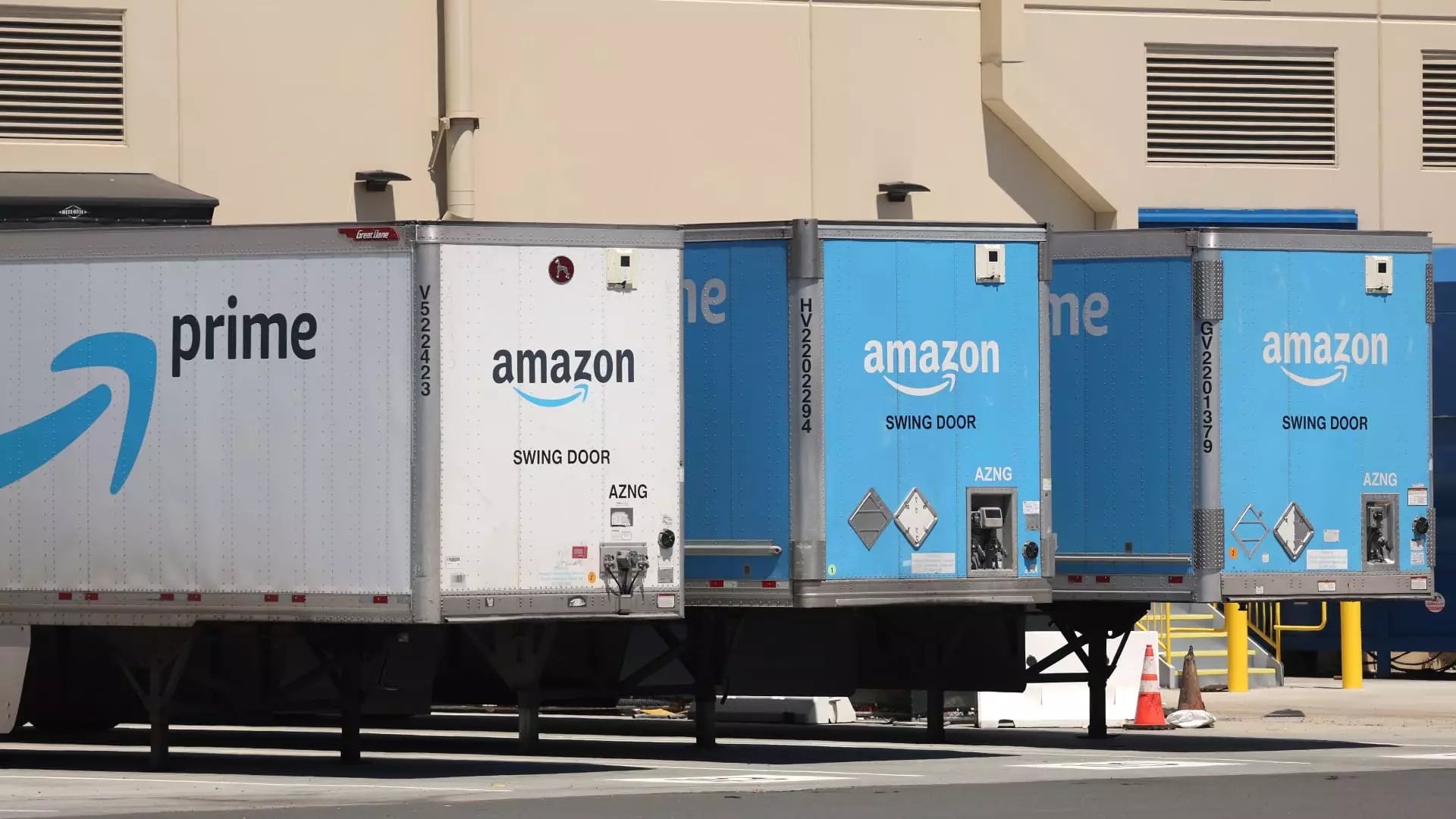The recent indictment of an Armenian organized crime ring for orchestrating a staggering $83 million cargo theft from Amazon has struck a chord across both retail and criminal justice communities. This incident doesn’t merely raise eyebrows; it underscores a critical vulnerability in the logistics chain of one of the world’s most influential companies. The audacity and sophistication of the perpetrators reveal just how far criminal enterprises will go to exploit gaps in security mechanisms. Such brazen thefts raise alarming questions about corporate responsibility and the need for enhanced security measures.
While the Department of Justice (DOJ) alleges that these criminals masqueraded as legitimate truck drivers, the fact that they successfully executed such a grand scheme over an extended period begins to paint a troubling picture. What does this say about Amazon’s internal security checks? If a crime organization can infiltrate a tech giant’s operations, who is safe? This attack not only jeopardizes the company but also the many honest third-party merchants who rely on Amazon’s platform to thrive. The waning trust in logistics security should be enough for any business leader to hit the alarm bells.
Cargo Theft: A Growing Epidemic in Retail
The backlash from such significant theft is not isolated to Amazon alone. Experts suggest that cargo theft is costing retailers nearly $1 billion annually. It is a scourge that has found fertile ground in today’s maze of e-commerce logistics. The sophistication displayed by this crime ring blurs the line between petty theft and organized crime, making it imperative that retailers adopt rigorous security protocols throughout their supply chains.
While Amazon has responded to the crisis by suspending dozens of merchants for allegedly harboring stolen goods, this reaction feels like a mere band-aid on a gaping wound. Many of those suspended merchants claim victimhood, caught up in a scheme they could neither see nor prevent. Such unintended consequences may push small businesses into bankruptcy as they grapple with lost revenue and reputational damage, questioning whether a system that aimed to empower them has now become their adversary.
The Role of Technology in Enhancing Logistics Security
The complexity of logistics in the modern retail sphere means that tech solutions must evolve at a lightning pace. Amazon’s Relay application, meant to streamline freight operations, has inadvertently opened doors to criminal enterprises. This poses the question: Are technological advancements simply racing ahead of safety provision? Companies need to incorporate advanced verification measures, such as real-time tracking and AI-driven anomaly detection systems, to protect their products and, by extension, their reputations.
If the DOJ’s charges are proven true, it not only reaffirms the inadequacies of current transport and verification systems but also forces us to reconsider our trust in the vendors and platforms we have come to rely on. While technology offers convenience, it is equally vital that corporations invest in the cybersecurity of their physical goods and services.
Criminal Networks: More Than Just Theft
The complexity of the charges against this criminal ring goes beyond financial losses; they are tied to more severe allegations, including attempted murder and illegal firearm possession. This intertwining of petty theft and violent crime paints a stark picture of organized crime’s growth and its deep penetration into everyday commerce. Retailers like Amazon are no longer just fighting against ordinary theft but are contending with multi-faceted threats that encompass broader societal issues.
High-level theft schemes that turn deadly further complicate the retail landscape. The notion that someone could cheaply benefit from a crime at the expense of not just a corporation, but directly affecting the lives of innocent people, is indeed chilling. Retail security must evolve alongside these criminal networks, pushing for cooperation between law enforcement and corporations for a more robust defense.
The ramifications of this case extend beyond mere commerce; they highlight systemic vulnerabilities, raise pressing questions about corporate ethics, and demand that industry leaders take a more proactive approach to safeguard their businesses and the community at large. Retailers must transcend previous paradigms, recognizing that the stakes are high and that complacency is no longer an option in a rapidly evolving digital economy.

